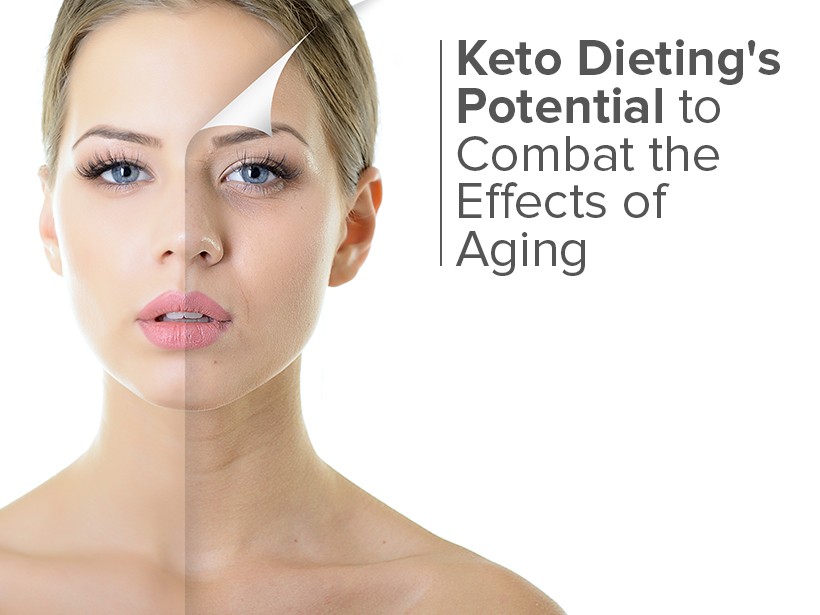The benefits of a ketogenic diet for epileptic patients have been established for some time, and this diet is often used in conjunction with medication to reduce the frequency of seizures. Over the last several years, however, experts have branched out to explore the effects of this diet on the body’s aging process and in treating and preventing physical and neurological conditions associated with age, like Alzheimer’s.
The Groundbreaking Study
Dr. Eric Verdin has been at the forefront of this research. In 2012, he led a team of researchers with the Gladstone Institute who tested the effects of the compound βOHB, produced during a prolonged ketogenic diet, on mice. They found that it helped to protect cells from what is known as “oxidative stress.” Oxidative stress occurs as “free radical” molecules (biproducts of the body’s use of oxygen to produce energy) accumulate over time and damage cells, and is a natural part of the body’s aging process.
“Over the years,” said Dr. Verdin, “studies have found that restricting calories slows aging and increases longevity, however the mechanism of this effect has remained elusive.”1 By focusing in on the βOHB molecule, Verdin’s study gave a possible explanation for why a ketogenic diet slows the effects of aging.
Continuing Research
Verdin remains one of the world’s leading experts on the “science of aging.” 2 While he stresses the importance of continued research, particularly on human subjects, his research into ketogenesis as a tool to combat age has continued to show promising results. In 2017 his lab found that the diet improved memory in aging mice and increased their chances of surviving to old age. A small-scale study with early-stage Alzheimer’s patients demonstrated improved memory in humans. 3 When asked last week about the future of his research lab, Verdin said “We have the feeling that the next five to ten years are going to be really incredible.” 4
Parsing through the facts
With the recent surge in popularity of keto dieting, there appears to have been some misreporting on the research done by Verdin. Apparently beginning with the Daily Mail, 5 a few publications over the last day or two have suggested that Verdin’s 2012 study was just published this month, and that his seminal results have only just appeared. Perhaps not coincidentally, Halle Berry was quoted last month saying that she has used keto dieting to stave off the physical effects of ageing. While these results are groundbreaking, they are by no means recent, and the research behind the anti-aging effects of ketogenic dieting has been accumulating for years. While news outlets may be latching on to keto dieting’s newfound celebrity, don’t let shoddy reporting scare you away; the health benefits of keto dieting were being backed up by evidence years before it made its way into the mainstream.
NUTRITIONAL DISCLAIMER
The content on this website should not be taken as medical advice and you should ALWAYS consult with your doctor before starting any diet or exercise program. We provide nutritional data for our recipes as a courtesy to our readers. We use Total Keto Diet app software to calculate the nutrition and we remove fiber and sugar alcohols, like erythritol, from the total carbohydrate count to get to the net carb count, as they do not affect your blood glucose levels. You should independently calculate nutritional information on your own and not rely on our data. The website or content herein is not intended to cure, prevent, diagnose or treat any disease. This website shall not be liable for adverse reactions or any other outcome resulting from the use of recipes or recommendations on the Website or actions you take as a result. Any action you take is strictly at your own risk.
- For Keto, the Everyday Research Says it All - March 6, 2019
- Huge Harvard Study Backs Up the Wide-Ranging Benefits of a Low-Carb Diet - February 25, 2019
- Experts Convene for Keto Conference - July 30, 2018




